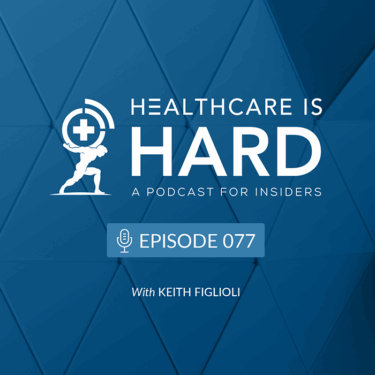
Dr. Ali Khan has spent his career at the intersection of medicine, public policy, and value-based care. He’s also been at the forefront of some of the country’s most innovative care delivery models—from Iora Health and CareMore to Oak Street Health and now Aetna, where he serves as Chief Medical Officer of Medicare at Aetna, a CVS Health company. In this episode, Keith Figlioli sits down with Dr. Khan for a conversation about Medicare’s future—and what it will take to make the promise of better, more affordable healthcare a reality.
A general internist by training, Dr. Khan’s path into healthcare began with a deep curiosity about the broader systems shaping people’s health. That curiosity took him from Harvard Kennedy School to the exam room to health plans and startups focused on reimagining the primary care experience for complex, underserved populations. Throughout his career, he’s gravitated toward organizations trying to solve public-sector problems with private-sector solutions—building care models that prioritize trust, access, and long-term outcomes.
Now at the helm of a Medicare Advantage program serving 4.2 million members, Dr. Khan brings a unique vantage point. In this conversation, he shares hard-earned lessons on care model design, what payers and providers need from each other, and why Medicare is at an inflection point. He makes a compelling case for a renewed focus on the fundamentals—not just risk adjustment or benefit design, but operational follow-through, last-mile care coordination, and culturally grounded team-based models that scale.
Dr. Khan and Keith discuss:
- Building care models that hold up under pressure. From Iora to Oak Street, Dr. Khan has seen firsthand that delivering better outcomes at scale requires more than mission—it takes structural rigor. He unpacks four key dimensions—cultural, clinical, operational, and technological—and explains why lasting impact depends on aligning all of them. Whether it’s equipping care teams to deliver in complex communities or building systems that can flex and scale, success hinges on getting the foundation right.
- Why affordability isn’t enough—and where Medicare Advantage must go next. With over half of Medicare beneficiaries now enrolled in MA plans, Dr. Khan argues it’s time to move beyond the value prop of supplemental benefits and zero-dollar premiums. The next chapter is about proving clinical excellence at scale. That means prioritizing follow-through over features—removing last-mile barriers, improving care coordination, and designing experiences people actually trust.
- From transactional to transformative: the evolving role of health plans. Plans have long relied on contractual structures to drive change, but Dr. Khan believes that era is fading. To deliver on the promise of value-based care, plans must shift from passive administrators to proactive partners—investing in infrastructure, surfacing actionable insights, and enabling providers to succeed across Medicare, Medicaid, and commercial populations alike.
- Where AI meets care delivery. Dr. Khan reflects on the potential of AI to reduce clinical variation, improve medication management, and drive better follow-up for patients—especially those with chronic conditions. But he cautions that technology alone won’t move the needle. To truly unlock AI’s value in Medicare, plans and providers must embed it within human-centered systems, coordinate care in real time, and ensure new tools support—not replace—the relationships that matter most.
As Dr. Khan notes, we’re entering a “put up or shut up” era for Medicare Advantage, where scrutiny is high and proof points matter. Yet within that pressure lies opportunity—particularly for those willing to do the unglamorous work of identifying barriers, building connective tissue, and supporting clinical teams in the trenches.
To hear Dr. Khan and Keith discuss these topics and more, listen to this episode of Healthcare is Hard: A Podcast for Insiders.
